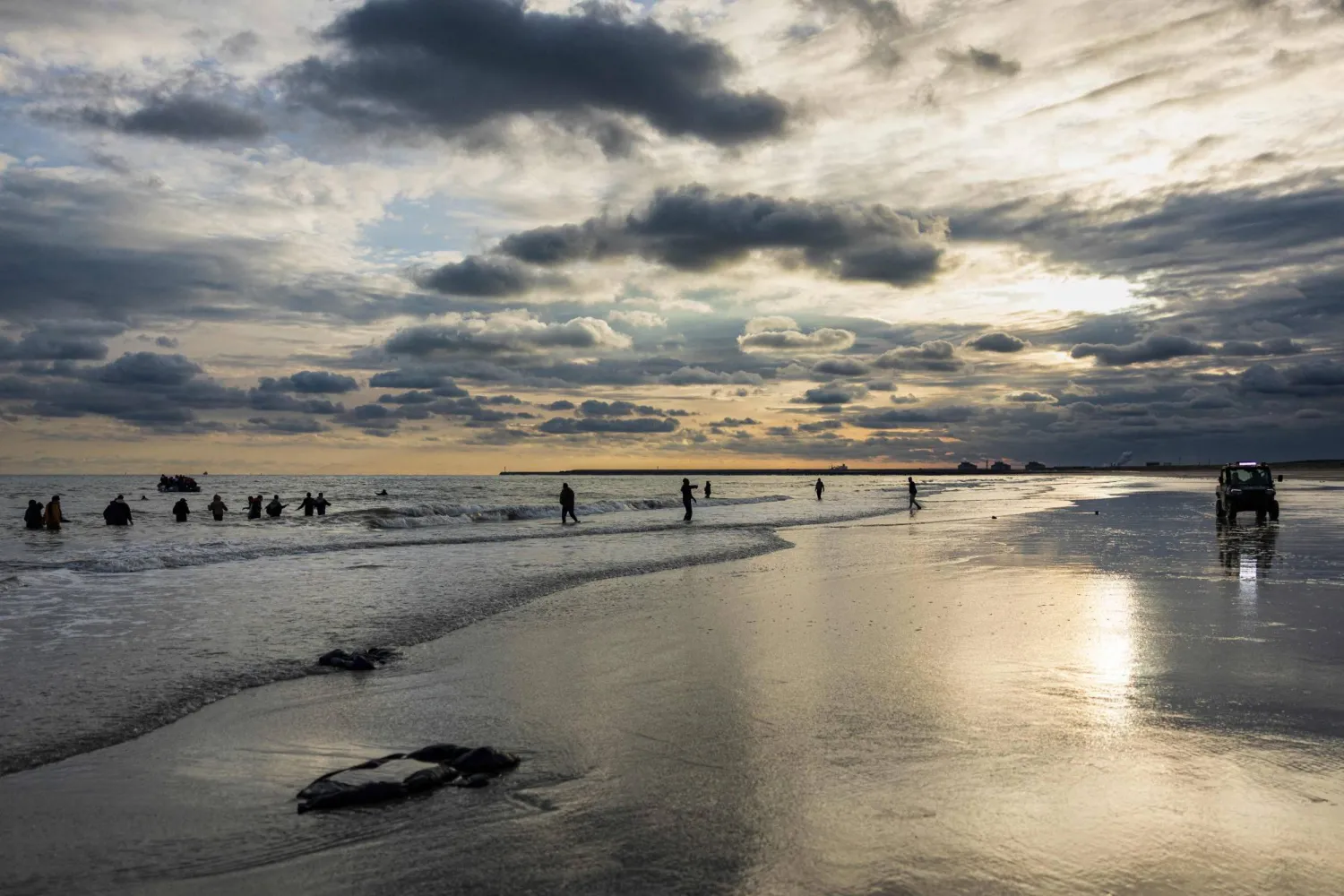One person was found dead after a boat carrying migrants trying to cross the Channel near Calais to Britain got into difficulties overnight, French authorities said on Sunday.
Thirty-four other people were rescued and taken to emergency services, Reuters quoted the local French department responsible for the Calais region as saying.
Tackling illegal immigration has been a key priority for both the British and French governments.
More than 12,000 asylum seekers have arrived in Britain this year, with many making perilous crossings over the Channel from France in overcrowded dinghies that risk capsizing.
Earlier this month, four migrants died while trying to cross over the Channel from France.
One Person Dead as Migrants Try to Cross Channel to Britain

Migrants try to board a smuggler's boat in an attempt to cross the English Channel, on the beach of Gravelines, near Dunkirk, northern France on April 26, 2024. (Photo by Sameer Al-DOUMY / AFP)

One Person Dead as Migrants Try to Cross Channel to Britain

Migrants try to board a smuggler's boat in an attempt to cross the English Channel, on the beach of Gravelines, near Dunkirk, northern France on April 26, 2024. (Photo by Sameer Al-DOUMY / AFP)
لم تشترك بعد
انشئ حساباً خاصاً بك لتحصل على أخبار مخصصة لك ولتتمتع بخاصية حفظ المقالات وتتلقى نشراتنا البريدية المتنوعة







